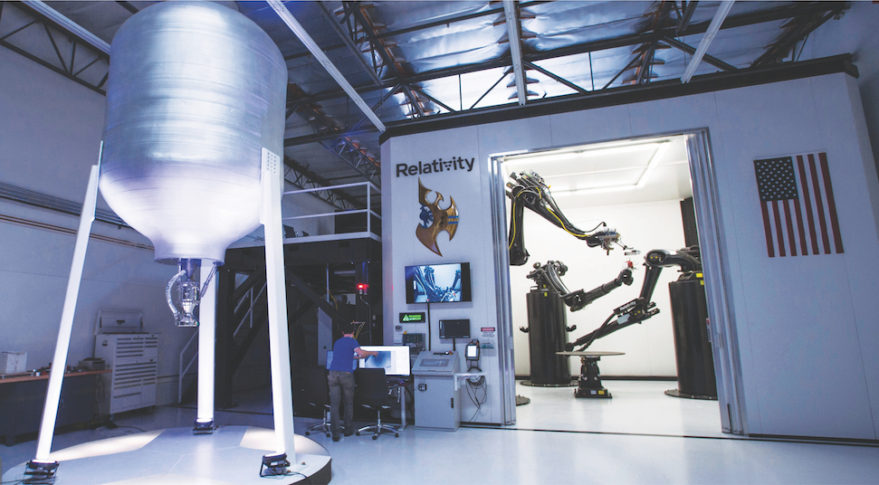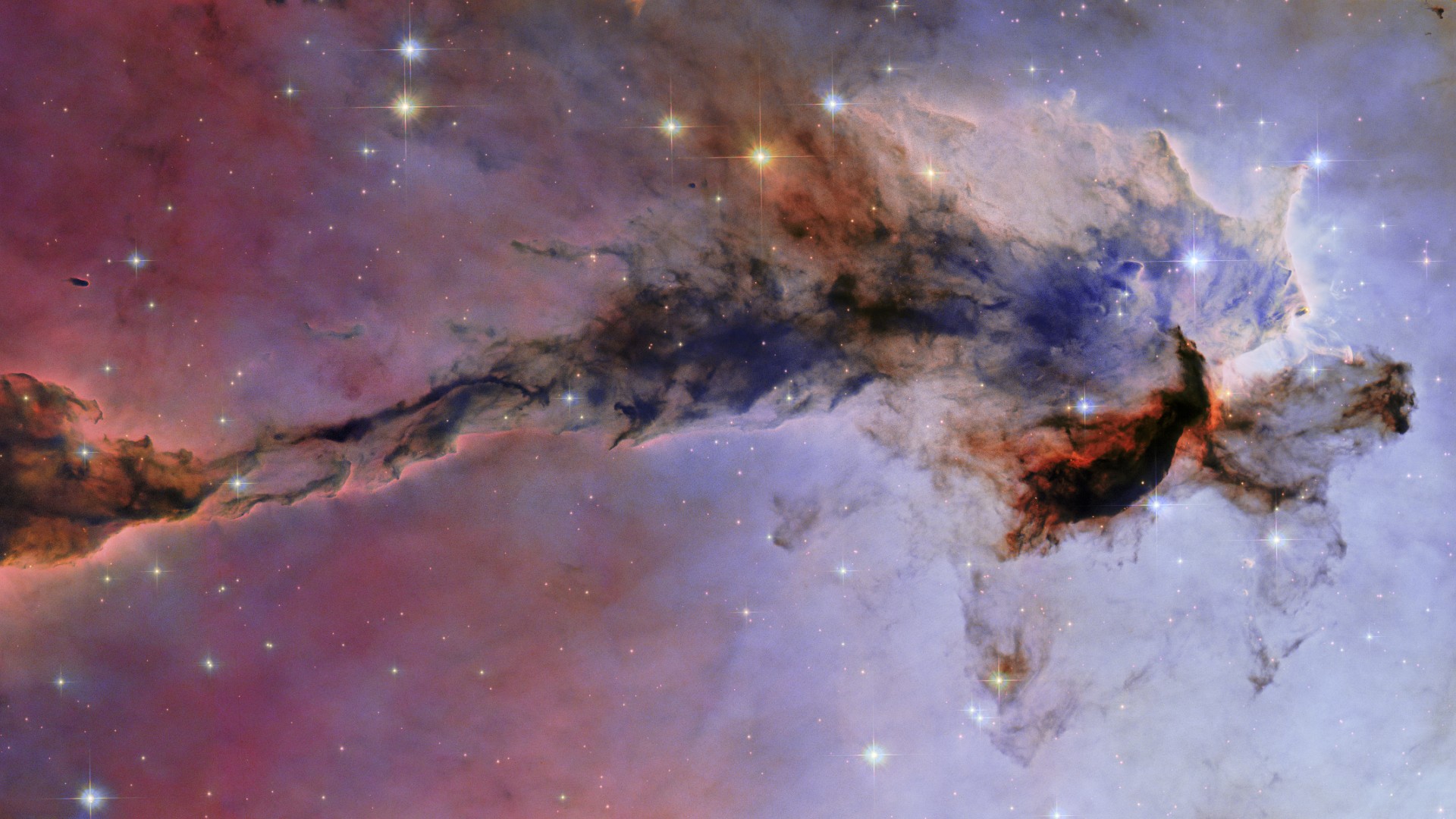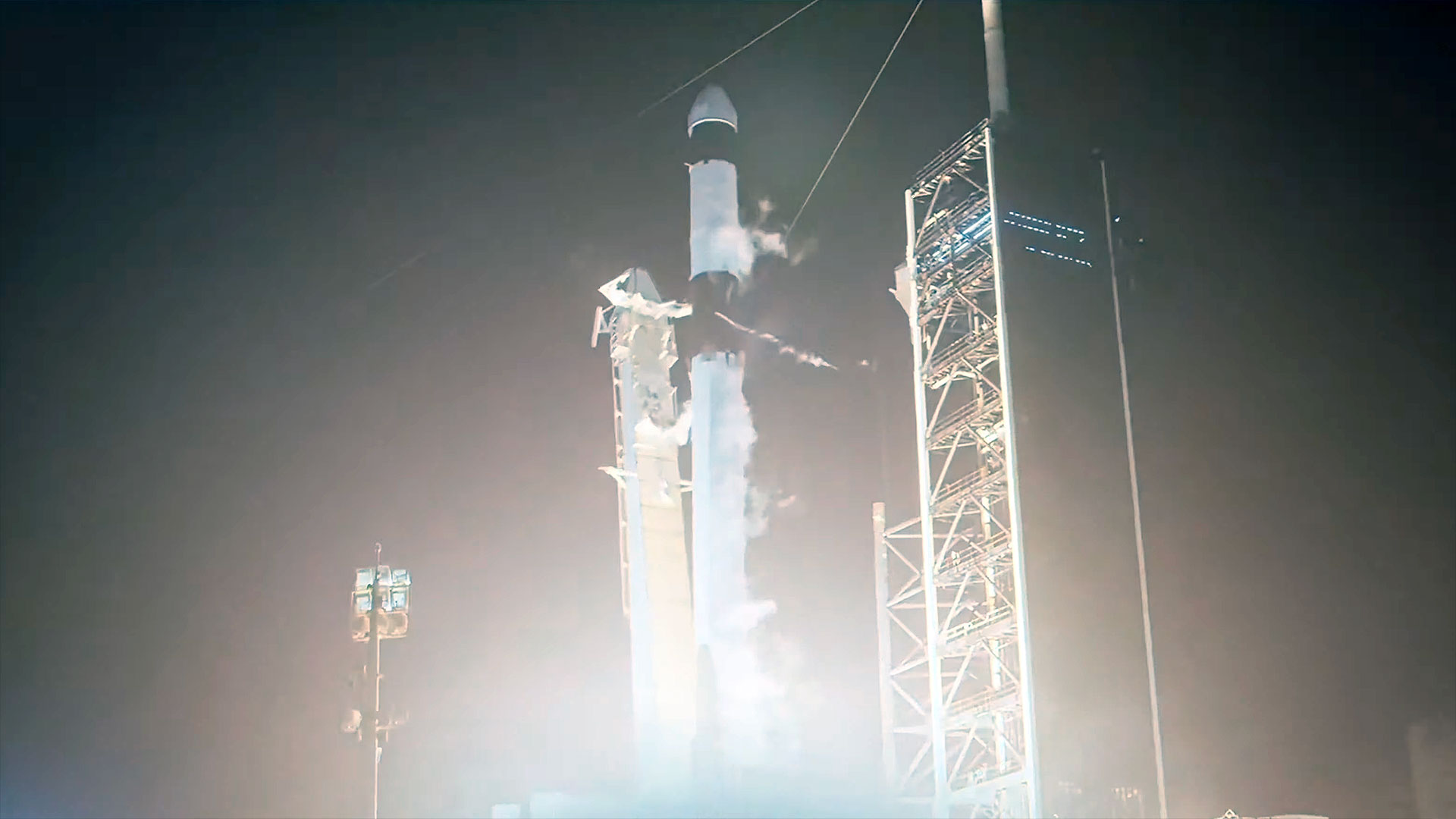Veteran of SpaceX, Virgin Orbit Joins Relativity Space

WASHINGTON — Relativity Space, the startup developing a small launch vehicle making extensive use of 3D-printing technologies, has brought on board a former SpaceX and Virgin Orbit executive to help grow the company.
Relativity announced Aug. 20 that Tim Buzza was joining the company as an advisor, spending several days a week at the Los Angeles-based company to support its work in a wide range of areas, from technology to regulations.
"He is coming in multiple times a week and actively helping us develop our launch site plans," Tim Ellis, chief executive and co-founder of Relativity, in an interview. "He's actively working to help us on launch sites and launch operations. He's also helping with developing the organization and structure: how to set up the teams for success."
Buzza was previously vice president of launch at Virgin Orbit, another small launch vehicle company. He left Virgin Orbit in May, according to his LinkedIn profile, after four years at Virgin Orbit and Virgin Galactic, the company from which Virgin Orbit was spun out from in 2017.

Prior to Virgin Orbit, Buzza was a vice president at SpaceX, joining the company just months after its founding in 2002. He joined SpaceX from Boeing, where he worked for 14 years on advanced research and development programs.
"He's really one of the rarest individuals in the whole industry, where he's actually seen multiple programs built up successfully before," Ellis said. "He also has a huge amount of knowledge in every subsystem of a rocket. He knows everything."
Ellis said he met with Buzza after learning that Buzza had left Virgin Orbit "to find his next adventure," and the two hit it off. "Once someone likes that becomes available on the open talent market, you really want to jump in," Ellis said.
Get the Space.com Newsletter
Breaking space news, the latest updates on rocket launches, skywatching events and more!
Buzza's role at Relativity is as an advisor, but Ellis didn't rule out Buzza taking on a formal executive role in the future. "It's probably too early to commit to anything in that way," he said. "We're going to continue to get to know each other. He's pretty excited about what we're doing and has been coming in more and more often."
Buzza is the latest in a series of "pretty big hires" at Relativity, Ellis said. The company recently hired its first director of business development and sales, as well as engineers who previously worked at Blue Origin, SpaceX and Virgin Orbit. Relativity now has 32 employees at its Los Angeles headquarters and test site at NASA's Stennis Space Center in Mississippi. "We're growing quickly from there, but trying to keep the talent bar very high," he said.
Relativity is one of dozens of ventures developing small launch vehicles, but stands out from its use of additive manufacturing to make most of the components of its rocket, reducing production times and costs. The company's Stargate 3D printer recently achieved a milestone by passing what Ellis described as the "most stringent" quality standard in the aerospace industry.
"That means there's an extremely low presence of any material flaws or defects," he explained. "This is actually overkill for the vehicle we're developing now," he added, but demonstrates that 3D printing can meet existing industry quality standards.
The company is also developing a new version of the Aeon 1 engine that will power its Terran 1 launch vehicle for testing in the near future at Stennis. "It's going to look pretty different from the ones that we have been testing," he said. "We're updating the design based on models that are now fully anchored. This will be even closer to the first design that we'll actually fly."
The first launch of the Terran 1 rocket, capable if placing up to 1,250 kilograms into low Earth orbit, is scheduled for as soon as late 2020. Ellis said the company is signing more letters of intent and memoranda of understanding with potential customers, but has not announced any firm launch contracts yet. "Stay tuned for some more news there," he said.
This story was provided by SpaceNews, dedicated to covering all aspects of the space industry.
Join our Space Forums to keep talking space on the latest missions, night sky and more! And if you have a news tip, correction or comment, let us know at: community@space.com.

Jeff Foust is a Senior Staff Writer at SpaceNews, a space industry news magazine and website, where he writes about space policy, commercial spaceflight and other aerospace industry topics. Jeff has a Ph.D. in planetary sciences from the Massachusetts Institute of Technology and earned a bachelor's degree in geophysics and planetary science from the California Institute of Technology. You can see Jeff's latest projects by following him on Twitter.










